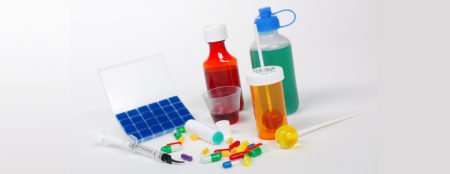Death by night light, a gummy future, skip the bedtime jerky, and more
16 Mar 2022
Posted by Andrew Kantor
All those opioid laws
Did … almost nothing. All those states passing prescription caps, anti-pill-mill laws, and even mandatory PDMPs, and the end result was bupkis.
That’s the conclusion of a new study out of Johns Hopkins (and Cornell and UMich) that found yes, there were some small, non–statistically significant changes, yes, but the laws they looked at …
…were each associated with a change of less than 1 percentage point in the proportion of patients receiving any opioid prescription [and] a change of less than 1 in days’ supply of opioid prescriptions […] per day per patient prescribed opioids.
We need 100 of you
Here’s the deal: The Georgia Pharmacy Foundation does great stuff, including funding scholarships for some of Georgia’s deserving student pharmacists.
This March, the foundation is looking for just 100 GPhA members to each donate $100 — it’s the $100 From 100 Campaign!
Be one of those 100 people.
If we had a dollar for everyone who said, “Someone else’ll do it,” we wouldn’t need to ask you. So we’re asking: Will you help tomorrow’s pharmacists? Give to the $100 From 100 Campaign!
Diabetics: Time your snacks
If you any diabetics who are interested in living longer, here’s a new tip: It’s not just what you eat, it’s when you eat it.
A salad and glass of milk before bedtime will help, and if you must eat those Slim Jims, don’t do it in the evening — that’s what Chinese endocrinologists found (and published in the Endocrine Society’s Journal of Clinical Endocrinology and Metabolism.) after analyzing the health data of more than 4,600 people.
“We observed that eating potatoes in the morning, whole grains in the afternoon, greens and milk in the evening and less processed meat in the evening was associated with better long-term survival in people with diabetes.”
Listening to their robot overlords
Sure, lots of people don’t listen to their doctor or pharmacist when told, “Look at your genetics, dude. You should think about a statin.” But you know who they will listen to? An app.
The good folks at Scripps Research designed one that calculates a person’s genetic risk for coronary artery disease. When it gave them the score and told them the dangers (“Remember how they found Uncle Mike?”) a lot more of the high-risk people went to get a prescription.
Big caveats, though: Right now, users have to take a 23andMe genetic test, deal with whatever horrible family secret it uncovered, link the data to the app, fill out a bunch of questions … you get the idea. But still, call it a proof of concept.
“On the whole it looks like a significant effect, especially considering that we were giving respondents only appropriately contextualized information about their gene-based risk scores—we weren’t directly telling them to go out and start taking medications.”
Cancer drugs: Lots of hype, narrow hope
Maybe you’ve noticed a bunch of new cancer drugs appearing over the last few years. Progress! Yes, but not as much as you might hope.
But UC Irvine hematologist/oncologists found that the cancer drugs the FDA approved between 2016 and 2021 have done little to change the first-line standard of care. Most of them affect a smaller number of patients — the ones who don’t respond to those existing drugs.
Only 14 percent (28 drugs) were good enough to displace the existing first-line drugs. The others were either alternatives (i.e., not any better), add-on therapies, or for later-stage patients “with few alternatives.”
Captain Obvious stares out the window in silence
“Severe COVID-19 may lead to depression or anxiety, study finds”
The future is gummier
Today’s fun fact: In 2019, “non-pill supplement delivery” — gummies, shots, powders, etc. — first beat out capsules and tablets as the way most people take supplements.
Some people have trouble swallowing. Other are apparently just tired of the effort required to take pills and capsules (or the effort to get Junior to take them) — aka “pill fatigue.” Whatever the reason, it won’t be long before more meds come in more forms.

More pharma companies leave Russia
AbbVie, Eli Lilly, and Novartis have also pulled out of Russia.
Lilly’s response is particularly brutal: “An Eli Lilly spokesperson clarified that the suspension will target certain drugs like Cialis.”
A frustrated Russia could not be reached for comment.

Night lights OF DOOM
Even if you close your eyes while you sleep, having a light on can kill you. Eventually. Apparently (found Northwestern neurologists), a room with even “moderate ambient lighting” causes your heart rate to rise, makes your sleep worse, and increases risk for heart disease and diabetes.
And it doesn’t take long: “[J]ust a single night of exposure to moderate room lighting during sleep can impair glucose and cardiovascular regulation.”
“Even though you are asleep, your autonomic nervous system is activated. That’s bad. Usually, your heart rate together with other cardiovascular parameters are lower at night and higher during the day.”
And if you absolutely must have a light? Go with amber or red/orange, not white or blue. They do as good a job keeping the monster(s) under the bed at bay, but are less stimulating for the brain.



